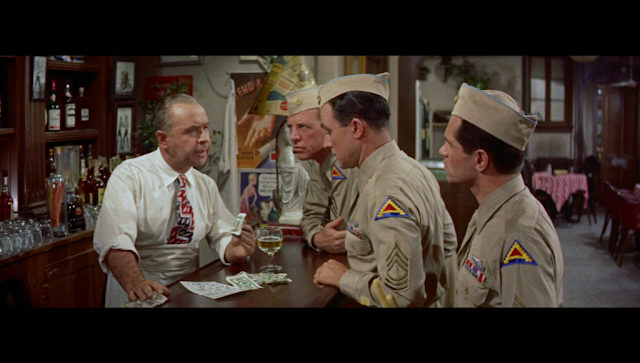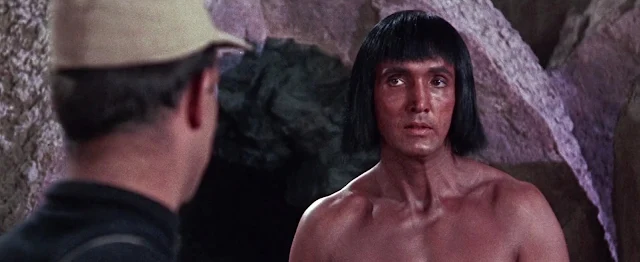It's Always Fair Weather (Gene Kelly, Stanley Donen, 1955)
Cast: Gene Kelly, Dan Dailey, Cyd Charisse, Dolores Gray, Michael Kidd, David Burns, Jay C. Flippen. Screenplay: Betty Comden, Adolph Green. Cinematography: Robert J. Bronner. Art direction: Cedric Gibbons, Arthur Lonergan. Film editing: Adrienne Fazan. Music: André Previn, songs by André Previn, Betty Comden, Adolph Green.
Since they satirized (albeit mildly) Hollywood and Broadway in their screenplays for Singin' in the Rain (Gene Kelly, Stanley Donen, 1952) and The Band Wagon (Vincente Minnelli, 1953), it seems almost inevitable that Betty Comden and Adolph Green should set their sights on television, and particularly TV advertising, in the screenplay for It's Always Fair Weather. Maybe it's just that television was seen as the enemy in Hollywood, but the last in their triad of MGM musicals of the 1950s seems a little sharper in tone than than the other two. The movie scores some nice hits on TV tearjerker shows like Ralph Edwards's This Is Your Life and on absurd commercials: The row of dancing soapboxes is a hit at the actual commercial in which a dancer wore a giant Old Gold cigarette pack. The unsentimental tone is there from the very beginning, when after a trio of just-demobilized GIs vows to reunite and celebrate their friendship ten years later, the film jumps ahead to a sour and disillusioning revelation of their midlife failures. Ted Riley (Gene Kelly) has become something of a lowlife, the manager of a boxer he won in a crap game; Angie Valentine (Michael Kidd) had wanted to become a famous chef, but runs a hamburger joint in Schenectady that he calls the Cordon Bleu; and Doug Hallerton (Dan Dailey), once an aspiring artist, is now an advertising executive with a sour stomach and an impending divorce. It all ends well, of course, with the help of a brainy TV producer played by Cyd Charisse and her feather-brained star played by Dolores Gray. Although André Previn's song score is only passable, it supports some fine production numbers staged by Kelly and Donen that take full advantage of the CinemaScope screen, like the trio in which Kelly, Dailey, and Kidd dance with garbage can lids on their feet, or the split-screen effect in which they perform a perfectly synchronized number with each in a different setting. Kelly gets one of his big solo numbers, a kind of echo of the celebrated "Singin' in the Rain" routine, but this time on roller skates, and Dailey, Charisse, and Gray also have good solos. (Kidd, better known as choreographer than performer, got shorted.) I think one reason that It's Always Fair Weather may not have the reputation of the other MGM musicals of the period is that when it came time to release it on television, the big numbers had to be chopped up, panned-and-scanned for small TV screens. Fortunately, it works well letterboxed on today's bigger, wider screens.




































